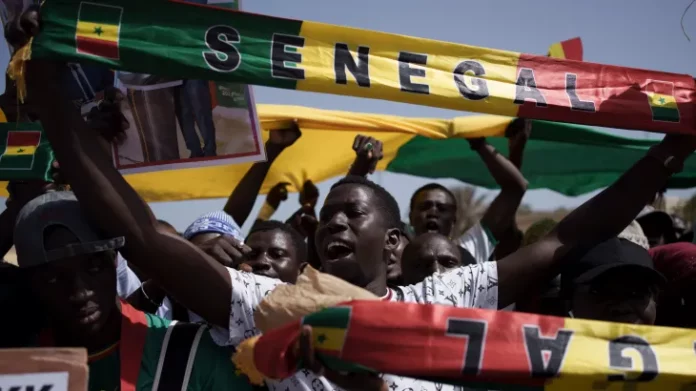Dimeji Macaulay
Senegal is one of the few African states that has never experienced a coup d’état or exceptionally harsh authoritarianism. Léopold Senghor, the first president after independence, resigned in 1981, handing over the presidential office to his Prime Minister, Abdou Diouf. The country was under the pseudo-Socialist Party for almost four decades without any significant economic progress under French, essentially colonial, control.
Presidential elections took place on March 24, 2024. The incumbent president, Macky Sall, could not stand again, due to constitutional term limits. Though he was exploring ways to stay in power, the overwhelming majority was against the continuation of his regime. Elections were initially scheduled for February 25, but were postponed indefinitely by a decree of the Sall Presidency. However, on February 15, the Senegalese Constitutional Council overturned the postponement and ordered elections to proceed, with the government setting an election date for March 24.
The election marked another blow to French colonialism, as the candidate of the former regime, Amadou Ba, lost by a big margin. This development adds up to the anti-Western military coups in the Sahel region (Guinea, Mali, Niger, Burkina Faso).
Opposition
From March 2021 to February 2024, the Macky Sall regime inflicted a clampdown on leading opposition figures and thousands of people were arrested. Among those arrested were opposition figures Ousmane Sonko and Bassirou Diomaye Faye. Faye was arrested due to a post on Facebook, regarding Sonko’s arrest. He accused magistrates of being in the pocket of the government while overlooking actual crimes. The authorities deemed the post “threatening to state security”! He was arrested and detained for 11 months and was subsequently released under the government amnesty, together with Sonko, just 20 days before the elections.
Faye, ran in the place of Sonko, the leader of The African Patriots of Senegal for Work, Ethics and Fraternity (PASTEF), as Sonko was not allowed to stand. He got 54% of the vote, while Amadou Ba, of the ruling Alliance for the Republic, got 35%.
Faye promised radical reforms and also made anti-French speeches during the campaign. During the inauguration ceremony, he said “I am aware that the results of the ballot box express a profound desire for systemic change”.
In its website, we can read that “PASTEF is not attached to any particular ideology (communism, socialism, liberalism, etc.) and aims to be pragmatic”.
Faye has voiced admiration for ex-US president Barack Obama and South African anti-apartheid leader Nelson Mandela. This already gives a picture of the kind of bourgeois policies he is likely to pursue.
Hellish conditions
Faye and Sonko have promised a new hope for the Senegalese people.
Presently, 75 percent of the 18-million population is under 35 years old and the unemployment rate is about 20 percent. Almost half of Senegal’s population lives below the poverty line. Due to these desperate circumstances, many young Senegalese are forced to risk their lives as migrants trying to enter Europe through the Mediterranean Sea.
Despite being a relatively stable country by African standards, Senegal is battling with a rapidly growing national debt. It is projected that the debt will continuously increase, between 2023 and 2028, by 22 percent.
Climate change has damaged food production through frequent heatwaves, droughts (particularly in the north) and flooding. This combines with poor land management and other factors such as deforestation in the southern part of the country.
Will the new government deliver?
These problems can only be addressed and confronted if the country’s resources are democratically managed and controlled by elected representatives of the workers, the youth and the poor communities. A planned economy would make life better for ordinary Senegalese. The suffering the people are going through is not new, it is the French colonial legacy.
France is Senegal’s largest investor, but more recently, countries including China, Turkey, and the United Arab Emirates have also put in money. In early 2023, Dubai pledged $1.1bn for port construction. Sectors attracting investments range from oil and gas to logistics, agribusiness, and mining.
“The government set up here on April 5 is a breakaway government… that embodies the project, a systemic transformation voted for by the Senegalese people,” said Sonko. The new government has pledged to “re-negotiate” contracts regarding the exploitation of natural resources. He has also talked about leaving the CFA West African Franc currency union, created and controlled by France.
At the same time, Faye and Sonko don’t appear to advocate for real radical changes in practice. “We are going to continue with what we have got, which has been approved and congratulated by everyone, because the state is also a continuity.” said Fatou Bintou Sarr, who was part of the president’s campaign group .
The tactic of Faye seems to be to use the geopolitical conflict between the West and the China-Russia bloc in order to negotiate a better position for himself and his regime. He stated that Senegal will remain a “certain and trustworthy ally”, but that it needed to “win more” from its relationship with France.
But to bring real change for the Senegalese people, a progressive government would have to break with French capitalism and empower the masses to build a socialist society. Only this way the abundant resources of Senegal can be used to meet the needs of the masses.













